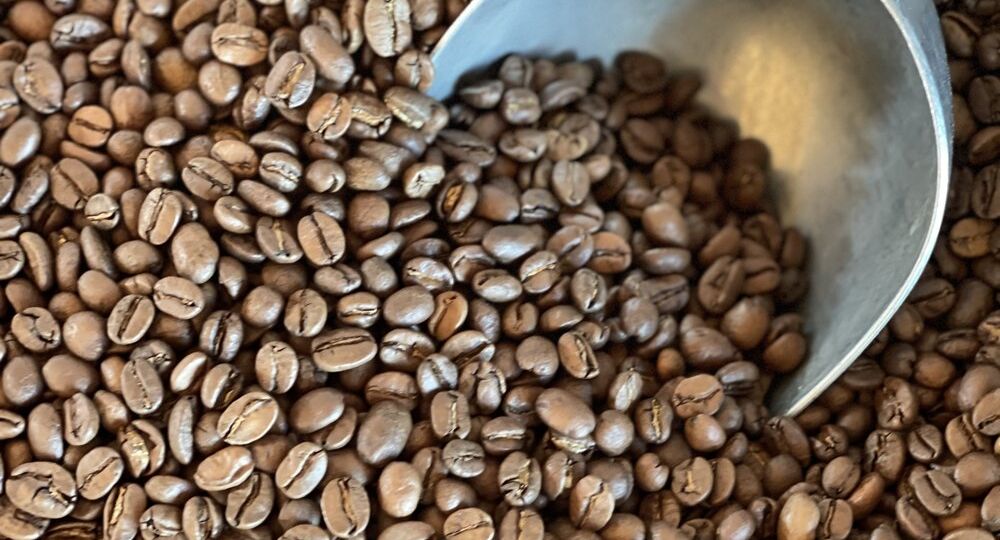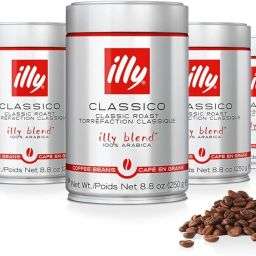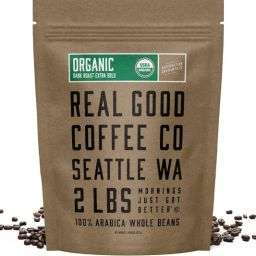
Low oil coffee beans are distinguished by their minimal surface oil, primarily resulting from specific roasting techniques. The presence of oil on coffee beans is a natural outcome of the roasting process, with the amount of oil surfacing varying significantly across different roast levels.
Light to medium roasts typically exhibit less oil on the surface, preserving the beans’ original flavors and aromas, while darker roasts tend to be oilier. The significance of choosing low oil coffee beans extends beyond mere preference; it impacts both the longevity of coffee-making equipment and the health of consumers.
Key Takeaways on Low Oil Coffee Beans
- Equipment Maintenance: Low oil coffee beans are less likely to clog coffee grinders and espresso machines, ensuring smoother operation and longer equipment life.
- Health Benefits: Consuming coffee made from low oil beans may reduce the risk of elevating cholesterol levels associated with the oils found in darker roasts.
- Variety and Flavor: There is a broad spectrum of flavors available within the range of low oil coffee beans, from light floral and fruity notes to medium-bodied, balanced profiles. Even within darker roasts, certain techniques can minimize oiliness while retaining rich flavors.
Factors Leading to Oiliness in Coffee Beans
The oiliness of coffee beans is directly correlated with the roasting process, specifically the roasting time and temperature. Beans start green and non-oily; as they are roasted, the heat causes chemical changes, leading to the Maillard reaction and the development of complex flavors.
Simultaneously, the heat draws out the natural oils contained within the beans to the surface. Generally, the longer and hotter the roast, the oilier the bean becomes. This phenomenon is particularly noticeable in dark roasts, where the extended exposure to high temperatures results in a glossy, oily exterior.
Choosing low oil coffee beans offers significant benefits for both coffee machine maintenance and health.
Advantages for Coffee Machine Maintenance
Low oil coffee beans are less likely to cause clogs and buildup in coffee grinders and espresso machines. The oils present in darker, oilier beans can stick to the components of coffee machines, leading to the need for more frequent cleaning and potentially shortening the lifespan of the equipment. By opting for low oil beans, you reduce the risk of oil residue, ensuring that your coffee brewing equipment operates more efficiently and lasts longer.
Health Implications Related to Oil Content in Coffee
The oils in coffee beans, particularly those that are darker and oilier, contain compounds such as cafestol and kahweol, which have been linked to increased cholesterol levels.
Choosing low oil coffee beans can minimize exposure to these compounds, especially when using brewing methods that don’t filter out these oils, such as French press or espresso. This choice can lead to a healthier coffee consumption experience, reducing the potential for negative health impacts associated with high cholesterol.
Lavazza Dek Filtro Medium Roast
This medium roast blend offers a balanced acidity with hints of cereal, making it ideal for various brewing methods such as Chemex, pour-over, and French press. Its minimal oil content is perfect for those looking to avoid clogging their coffee machines while enjoying a high-quality Italian coffee experience.
Camano Island Coffee Roasters’ Sumatra Dark Roast
Despite being a dark roast, Camano Island’s Sumatra blend is low in oil, offering a rich flavor profile with notes of nuts and fruit without the worry of damaging your coffee equipment. It’s also USDA-certified organic, ensuring a high-quality, environmentally friendly coffee option.
Miscela D’Oro’s Gran Crema Espresso Beans
For espresso lovers, Miscela D’Oro’s Gran Crema offers a medium roast option that is low in oil yet rich in flavor. It provides a smooth taste and thick crema, perfect for those morning espressos or afternoon pick-me-ups, without the concern of oily residue.
Filicori Zecchini’s Forte Blend
Filicori Zecchini’s Forte Blend is a medium-dark roast that strikes the perfect balance between intensity and oil content. Each bean type is roasted separately to achieve the ideal roast level before blending, offering a complex flavor profile that is still low in oil.
Recommendations for All Roast Levels
For those exploring beyond these specific recommendations, remember that light to medium roasts generally have lower oil content. However, there are also dark roasts specially processed to reduce oiliness, providing options across the entire roast spectrum for those seeking low oil coffee beans.
How to Choose and Use Low Oil Coffee Beans
Choosing and using low oil coffee beans effectively can enhance your coffee experience while maintaining your equipment and considering health aspects.
Tips on Selecting the Right Beans and Brewing Methods to Minimize Oiliness
- Roast Level: Opt for light to medium roasts as they naturally contain less surface oil compared to darker roasts. The roasting process plays a crucial role in determining the oil content, with lighter roasts exhibiting minimal oiliness.
- Bean Quality: High-quality beans, especially those that are single-origin or specialty-grade, tend to have better control over oil levels during the roasting process. These beans not only provide a superior flavor profile but also ensure consistency in oil content.
- Brewing Method: Use brewing methods that are less likely to be affected by oil levels in coffee beans, such as drip coffee makers, pour-overs, or Aeropress. These methods can help in minimizing the impact of oils on the taste and maintenance of coffee equipment.
- Storage: Store coffee beans in a cool, dark place to maintain their freshness and minimize oil surfacing. Proper storage can significantly affect the longevity and flavor of your coffee.
FAQs
- Q: Does choosing low oil coffee beans mean compromising on flavor?
- A: Not necessarily. While the oil in coffee beans can contribute to the flavor, low oil coffee beans can still offer a rich and diverse flavor profile, especially if they are high-quality and properly roasted.
- Q: Are low oil coffee beans healthier?
- A: Low oil coffee beans may have a lower concentration of compounds that can increase cholesterol levels, making them a healthier option for individuals concerned about their cholesterol intake from coffee.
- Q: How do low oil coffee beans benefit coffee equipment?
- A: Low oil coffee beans are less likely to cause buildup and clogs in coffee grinders and espresso machines, leading to fewer maintenance issues and longer equipment lifespan.
Final Thoughts
Low oil coffee beans play a significant role in enhancing the coffee experience by offering a rich flavor profile without the drawbacks of equipment clogging and potential health issues.
By selecting the right beans and brewing methods, coffee enthusiasts can enjoy a superior cup of coffee that is both delightful and considerate of equipment maintenance and health considerations.









